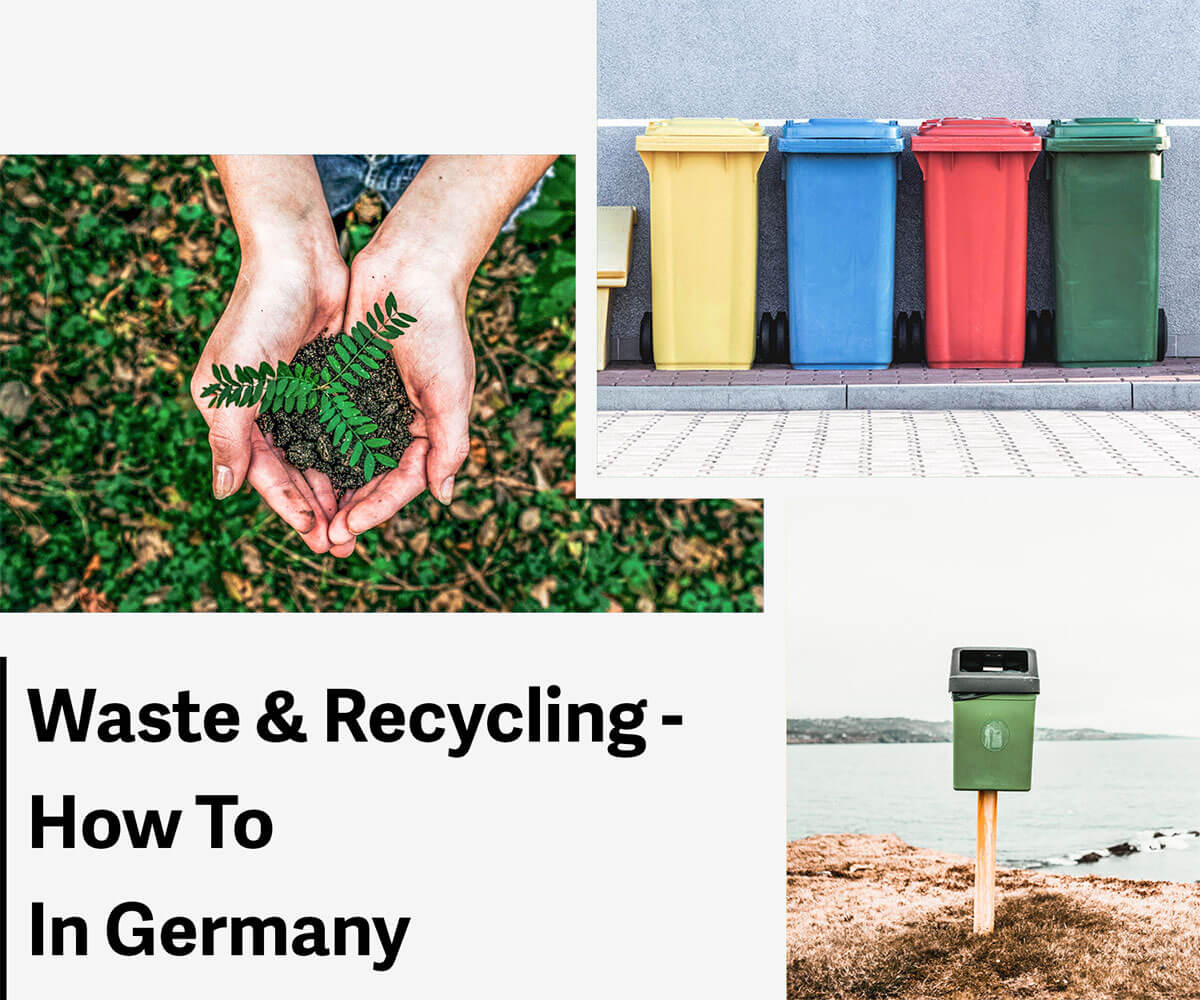Waste & Recycling - How To in Germany
 The German system for waste and recycling might be a little more extensive than elsewhere, however, it’s great news for the environment because most people take it seriously and do what they can. Read on to learn how to correctly dispose of your household waste and other things and once you have the hang of it, it’s pretty easy!
The German system for waste and recycling might be a little more extensive than elsewhere, however, it’s great news for the environment because most people take it seriously and do what they can. Read on to learn how to correctly dispose of your household waste and other things and once you have the hang of it, it’s pretty easy!
Yellow Bin/Yellow bags (Gelbe Sack) – If you live in an apartment then you will have a yellow bin and otherwise you will have yellow sacks (these are provided by the BSR) Cans, plastic, polystyrene, aluminium, tetra cartons, old pots and spray cans (empty) are all destined for the yellow bin/bag – the items need to be rinsed. If you place your plastics in a yellow sack, you will have to check which day of the week these are picked up outside from the street in your neighbourhood.
Blue – Blue bins are for paper, cardboard, magazines. Make sure you break everything down, especially boxes. You may be required, especially if you live in a house to organise the blue bin and pick up, this costs approx 100€ a year but check with your Landlord if this is included.
Brown (or brown lid) – This is the compost or bio-waste bin. If you live in a house, you can also alternatively have your own compost. This bin takes all biological waste such as vegetable scraps, fruit peel, garden waste, coffee filters and also tea bags.
Glass – There are two types of glass recycling in Germany. One is with ‚Pfand‘ which means you have paid a small deposit on the bottle which will be returned to you when you take it to a recycling station in the supermarket – this can be anything between 10 – 30 cents.
All other glass is sorted by colour and put into recycling bins, there are a few of these around every neighbourhood. It is best to use these between the hours of 8am – 5pm during the week/Saturdays and not at all on Sundays, as they can be a bit noisy when you throw in the glass.
Black – the black bin covers all other household rubbish such as non-compostable food scraps, nappies, mirror glass etc. In Berlin, this waste is burned in a waste heating power plant. This creates electricity and heat. 5 percent of apartments in Berlin use this electricity and heat for heating.
Appliances & Furniture etc – If you have larger items or electrical items to get rid of, you must bring these to an official rubbish dump run by the city. In Berlin, this is the BSR Recycling Hof – there are 15 around the city.
Next Post
By
Juli Buchanan
Hi there! I'm Juli, I have german roots but I grew up in New Zealand and have been living in Germany since 2004. I love sharing my passion for Berlin and all it has to offer with new 'Berliners' and through my work as a freelance Relocation Consultant with IRC I have the opportunity to do so.

Let's speak
